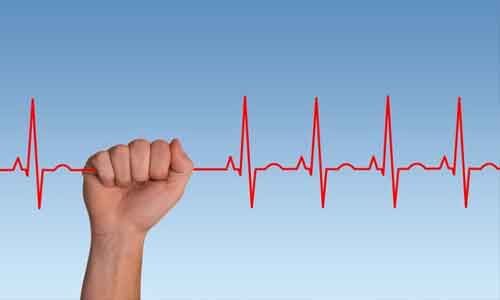- Home
- Medical news & Guidelines
- Anesthesiology
- Cardiology and CTVS
- Critical Care
- Dentistry
- Dermatology
- Diabetes and Endocrinology
- ENT
- Gastroenterology
- Medicine
- Nephrology
- Neurology
- Obstretics-Gynaecology
- Oncology
- Ophthalmology
- Orthopaedics
- Pediatrics-Neonatology
- Psychiatry
- Pulmonology
- Radiology
- Surgery
- Urology
- Laboratory Medicine
- Diet
- Nursing
- Paramedical
- Physiotherapy
- Health news
- Fact Check
- Bone Health Fact Check
- Brain Health Fact Check
- Cancer Related Fact Check
- Child Care Fact Check
- Dental and oral health fact check
- Diabetes and metabolic health fact check
- Diet and Nutrition Fact Check
- Eye and ENT Care Fact Check
- Fitness fact check
- Gut health fact check
- Heart health fact check
- Kidney health fact check
- Medical education fact check
- Men's health fact check
- Respiratory fact check
- Skin and hair care fact check
- Vaccine and Immunization fact check
- Women's health fact check
- AYUSH
- State News
- Andaman and Nicobar Islands
- Andhra Pradesh
- Arunachal Pradesh
- Assam
- Bihar
- Chandigarh
- Chattisgarh
- Dadra and Nagar Haveli
- Daman and Diu
- Delhi
- Goa
- Gujarat
- Haryana
- Himachal Pradesh
- Jammu & Kashmir
- Jharkhand
- Karnataka
- Kerala
- Ladakh
- Lakshadweep
- Madhya Pradesh
- Maharashtra
- Manipur
- Meghalaya
- Mizoram
- Nagaland
- Odisha
- Puducherry
- Punjab
- Rajasthan
- Sikkim
- Tamil Nadu
- Telangana
- Tripura
- Uttar Pradesh
- Uttrakhand
- West Bengal
- Medical Education
- Industry
Inverted T wave during AF rhythm associated with CV events: Study

Japan: Inverted T wave is commonly observed in electrocardiogram (ECG) of atrial fibrillation (AF) patients and its presence during AF rhythm is associated with subsequent cardiac events, finds a recent study in the BMJ journal Heart.
There is no proper understanding of the clinical significance of ECG abnormalities during AF rhythm. Tetsuma Kawaji, Department of Cardiology, Mitsubishi Kyoto Hospital, Kyoto, Japan, and colleagues aimed to explore the impact of the inverted T wave on cardiac prognosis in patients with AF.
For this purpose, the researchers enrolled 2709 patients with AF whose baseline ECG was available from a Japanese community-based prospective survey, the Fushimi AF Registry. The researchers also examined the impact of inverted T wave in baseline ECG at AF rhythm on the composite of cardiac death, myocardial infarction, and hospitalization due to heart failure was examined. The median follow-up duration was 5.0 years.
Key findings of the study include:
- Intraventricular conduction delay, ST-segment depression, and inverted T wave were observed in 15.8%, 24.7%, and 41.4% of baseline ECG with a mean heart rate of 94.7 beats per minute.
- The incidence rate of the composite cardiac endpoint was significantly higher in patients with inverted T wave than those without (5.8% vs 3.3% per patient-year).
- The higher risk associated with inverted T wave was consistent even for individual components of the composite cardiac endpoint.
- By multivariable analysis, inverted T wave was an independent predictor of the composite cardiac endpoint (HR 1.53).
- Inverted T wave was detected in 15.7% at anterior leads, 19.8% at inferior leads, and 26.6% at lateral leads.
- The location of inverted T wave was not associated with risk of composite cardiac endpoint.
"Inverted T wave was commonly observed in patients with AF and its presence during AF rhythm was associated with subsequent cardiac events," wrote the authors.
Reference:
The study titled, "Association of inverted T wave during atrial fibrillation rhythm with subsequent cardiac events," is published in the BMJ journal Heart.
DOI: https://heart.bmj.com/content/early/2021/05/26/heartjnl-2021-319199
Dr Kamal Kant Kohli-MBBS, DTCD- a chest specialist with more than 30 years of practice and a flair for writing clinical articles, Dr Kamal Kant Kohli joined Medical Dialogues as a Chief Editor of Medical News. Besides writing articles, as an editor, he proofreads and verifies all the medical content published on Medical Dialogues including those coming from journals, studies,medical conferences,guidelines etc. Email: drkohli@medicaldialogues.in. Contact no. 011-43720751


